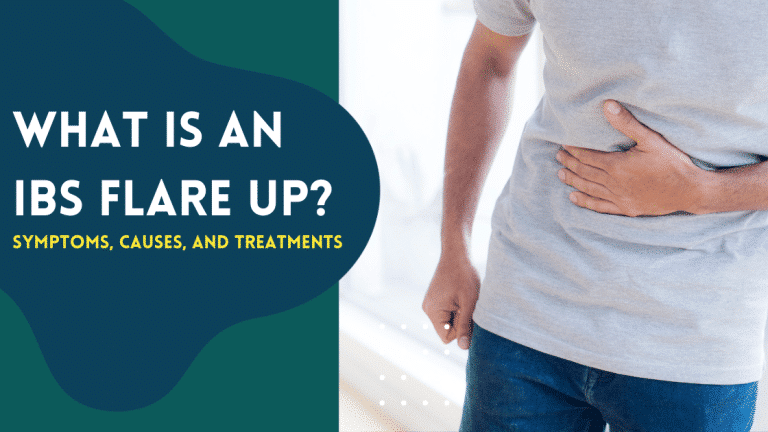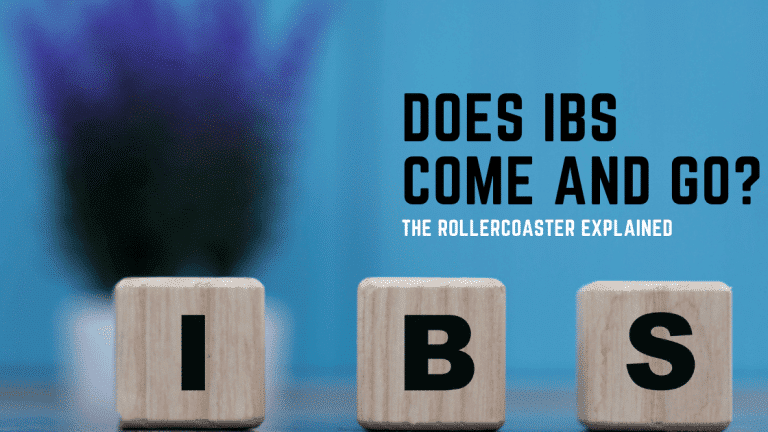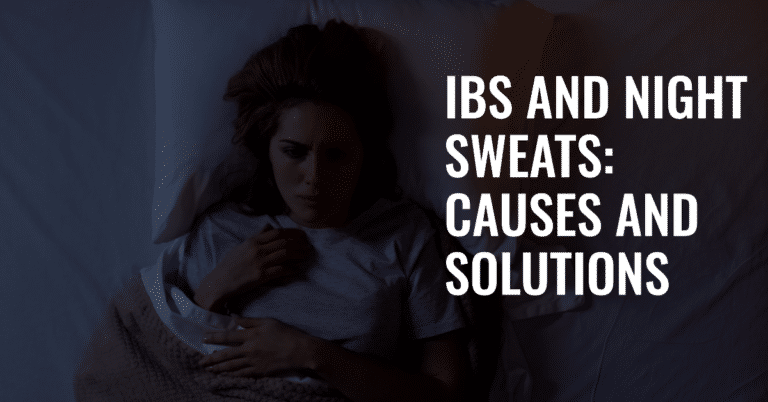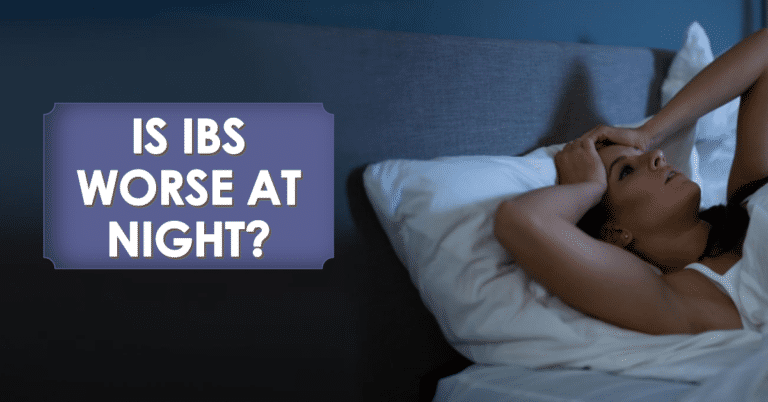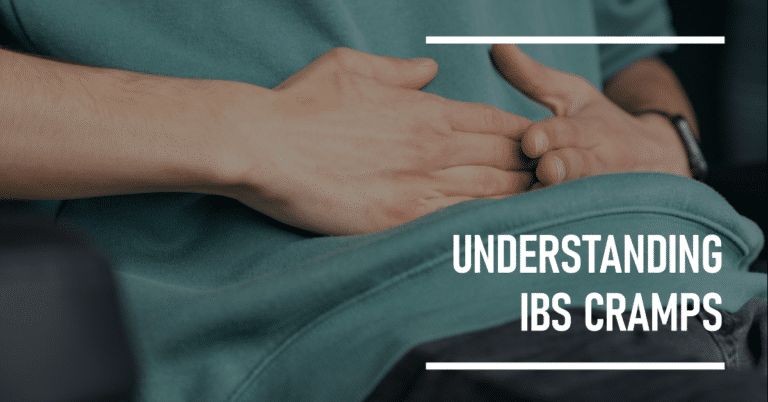What Does IBS Feel Like? – The Turbulent World of My Sensitive Stomach
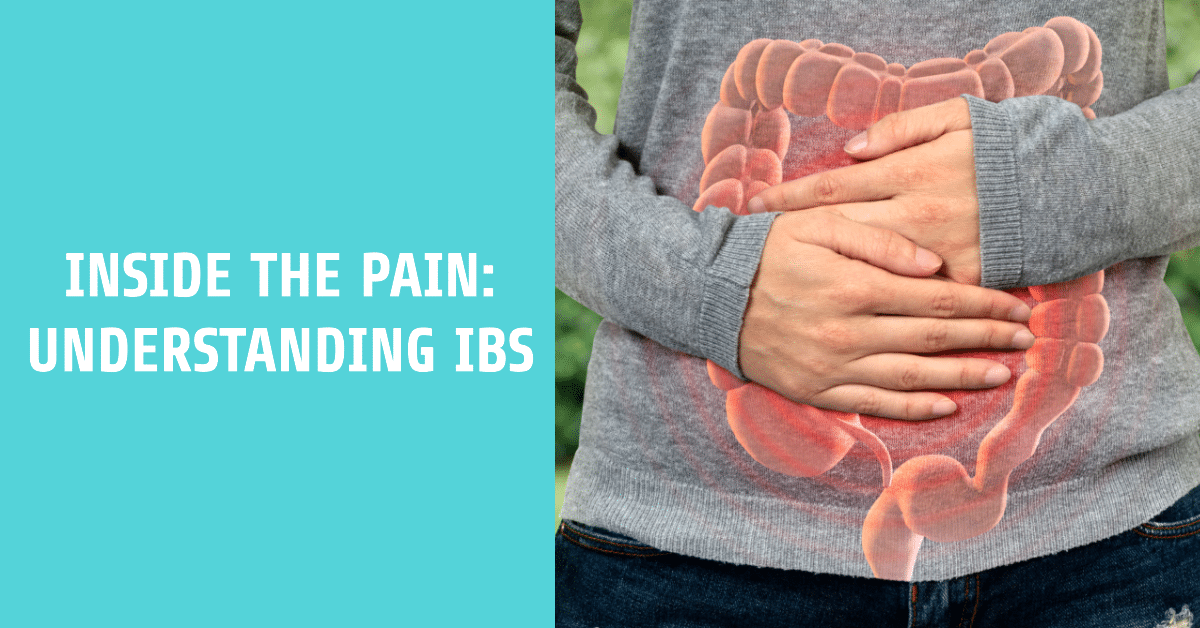
Consider this your front-row seat to the unfiltered, behind-the-scenes truth about living with irritable bowel syndrome (IBS).
Diagnosed out of the blue in 2021, I quickly learned this condition plays by its own rules. My gut never knows what each day with IBS will deal out.
Will it be constipation? Diarrhea, or perhaps something else?
It all comes down to the fact that knowledge is power. So let’s navigate the twists and turns together and learn – what does IBS feel like?
When Cramps Attack: What IBS Pain Feels Like
For me, IBS pain feels like violent cramps and stabbing sensations deep in my lower abdomen that come and go in waves, sometimes lasting for hours.
The pain gets worse after eating a meal, during stressful events, or when I need to have a bowel movement.
But the thing is, IBS pain is different for everyone. You may feel bloated, gassy, crampy, achy, or just “uncomfortable” in your abdomen.
The discomfort tends to increase leading up to a bowel movement. IBS pain ranges from mild to severe.
When IBS pain strikes, even basic tasks become difficult. The intense bathroom urges make it hard to sit through meetings at work or attend social events. IBS makes it hard to leave the house, not knowing when symptoms could suddenly flare up.
Triggers That Fire Up Common IBS Symptoms
There are several common triggers that spark my IBS symptoms. Stress and anxiety are big ones – when I’m feeling worried or overwhelmed, my symptoms inevitably flare up soon after.
Some foods are automatic triggers too, especially fatty or fried foods, coffee, alcohol, carbonated drinks, and gas-producing vegetables like broccoli and cauliflower. Eating large meals also aggravates my IBS.
Identifying and avoiding your personal IBS triggers can help reduce episodes of abdominal pain and bowel trouble.
I’ve also found relaxation techniques like meditation, yoga, and deep breathing help calm my mind and body to minimize symptoms.
The Agony of Unpredictable Bowel Movements
For most people, bowel movements provide relief. But with IBS, they often make pain and discomfort much worse. I never know if it will be constipation or diarrhea when I have the sudden urge to go.
Some days I feel sluggish and bloated from constipation. Other days, diarrhea sends me running to the toilet without warning. These unpredictable bowel changes significantly impact my daily life and ability to leave the house.
The urgency and frequency of bowel movements with IBS can be exhausting and embarrassing.
I’ve had to leave dinners, concerts, and meetings midway through to desperately search for a restroom. It interferes with normal activities and disrupts my workflow.
Pain and Cramping – The Constant Companions
Though symptoms fluctuate daily, abdominal pain and cramping are constants with IBS. The level of discomfort ranges from mild to acute.
For me, the pain feels like intense stabbing sensations and cramps deep in my lower abdomen. It comes and goes in waves, often lasting for hours.
Pain and cramping tend to increase leading up to a bowel movement. The intestines are likely overreacting to stimuli like gas, food, stress, or hormones that wouldn’t bother most people.
IBS pain also results from colonic muscle spasms and inflammation in the digestive tract. The brain-gut connection has gone awry, causing distress signals of pain.
Though unpleasant, I’ve learned techniques to help manage the pain, like applying heat, gentle stretches, deep breathing, and avoiding trigger foods.
The Quest for Answers: Navigating the IBS Diagnostic Journey
You won’t believe the journey I’ve been on to figure out what’s been going on with my stomach! It all started back in 2019 when I first noticed I was having weird bowel issues.
Diarrhea one week, constipation the next. Plus, this nasty cramping and pain that just wouldn’t quit.
Just as the symptoms began, the pandemic struck and getting a hospital appointment was pretty much out of the question. But let’s not talk about that, shall we?!
So for well over a year, I had no choice but to go it alone and struggle daily with my symptoms. Keeping a food/symptom diary offered some relief, but I was a long way away from the answers I desperately needed.
Finally, in 2021, I went to a private hospital to see a new gastroenterologist. The first two consultants I saw weren’t particularly helpful, and could only give me a ‘maybe’ for potential celiac disease.
Thankfully, this time around the doctor was super thorough – he went over my history and symptoms with a fine-toothed comb.
He ordered what felt like a million tests – blood tests, stool samples, and a colonoscopy.
After all that, he confirmed I’ve got a double whammy: irritable bowel syndrome AND celiac disease!
I can’t tell you the relief I felt finally having an answer after all this time dealing with crazy bowel issues. It’s like a huge weight lifted off my shoulders.
While it was a long and messy road, I’m so glad I stuck with it to get the thorough testing and diagnosis I needed. After this point, it was time to regain control and get my stomach back on track!
Treatments That Offer Hope For IBS Sufferers Like Me
Living with Irritable Bowel Syndrome can be challenging, but several treatments help symptoms of IBS:
- Dietary Changes: Identifying and avoiding trigger foods can significantly reduce symptoms. A diet low in FODMAP foods may help.
- Medications: Anti-spasmodics, antidiarrheals, antibiotics, and low-dose antidepressants can relieve pain, constipation, and diarrhea.
- Probiotics: Supplements with healthy gut bacteria may ease symptoms and improve gut health in people with IBS.
- Stress Management: Relaxation techniques like meditation, yoga, and CBT help reduce symptom flares related to stress.
- Gut-directed Hypnotherapy: Hypnosis therapy with tools like Nerva show promise for reducing abdominal pain and bowel issues long-term.
While IBS is chronic, it doesn’t have to control your life. These treatments paired with lifestyle changes empower you to manage symptoms and thrive. There is hope!
What Does IBS Feel Like? – FAQs
How can I diagnose if I have IBS?
Diagnosing IBS can be tricky. Doctors usually try to rule out other gastrointestinal issues first that could be causing your symptoms.
If you have common IBS symptoms like stomach pain, changes in bowel habits, bloating and gas, and they can’t find another cause, then they’ll probably say it’s IBS.
There’s no single test to diagnose it, so it often comes down to the symptoms and ruling things out.
What causes the pain and discomfort of IBS?
The exact cause of IBS isn’t fully understood. It seems to involve the gastrointestinal system becoming extra sensitive and the bowels not working as they should. Cramps, pain, bloating, diarrhea and constipation can then occur as a result.
Stress also appears to play a role in flare ups. While the causes aren’t totally clear, the result is your bowels being out of balance.
What are some typical symptoms of IBS?
Common IBS symptoms include stomach pain, changes in bowel habits, bloating, gas, diarrhea and/or constipation. Nausea, indigestion and bowel urgency can occur too.
Symptoms tend to come and go in episodes. Each person experiences IBS a bit differently – some have more constant symptoms while others go through symptom-free periods.
How is IBS pain and discomfort different for each person?
IBS affects people differently. One person may deal more with constipation while another has more issues with diarrhea.
Factors like genetics, stress levels, anxiety, food triggers, hormone changes and more can impact how IBS manifests. The location, intensity and duration of pain and discomfort varies individually too.
Can IBS cause stomach pain and indigestion?
Yes, IBS can cause stomach pain, indigestion, heartburn, nausea and other upper GI symptoms.
This is because the changes in bowel patterns and intestinal spasms disrupt the normal digestion process.
And when the intestines aren’t working smoothly, it affects the stomach too.
How often will I experience IBS flare ups and pain?
Frequency of flare ups varies by individual. Some have constant daily symptoms while others can go weeks or months between episodes.
Identifying potential triggers like stress, foods, hormones or disrupted sleep patterns can help manage flares.
Keeping a symptom journal can provide insight. IBS is unpredictable, but managing flare ups is possible.
Disclaimer: This content is based on my personal experience as an individual diagnosed with celiac disease and IBS (Irritable Bowel Syndrome) who follows a strict gluten-free diet. This does not constitute medical advice. Please consult a medical professional, nutritionist, or qualified dietitian for personalized, professional advice.

